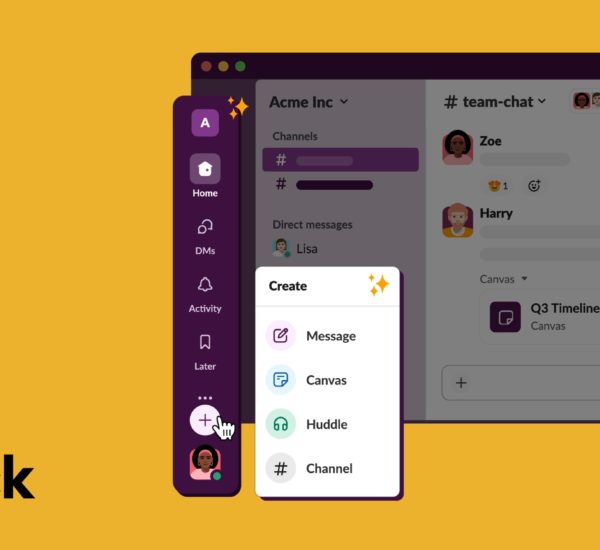While employees increasingly embrace remote work, leaders at big companies like Tesla remain skeptical. In fact, Elon Musk has made his stance crystal clear—remote work is a privilege, not a right. But what’s driving this resistance? From fears of lost productivity to concerns over team collaboration, there are several reasons why corporate giants are holding on to in-office work environments. Let’s explore the surprising factors keeping remote work at arm’s length for big companies.
Remote work has become the ultimate employee perk—offering freedom, flexibility, and a better work-life balance. Yet, despite all these benefits, some of the world’s largest companies are digging their heels in, refusing to let go of the traditional office model. Why?
“Anyone who wishes to do remote work must be in the office for a minimum (and I mean *minimum*) of 40 hours per week or depart Tesla. This is less than we ask of factory workers.
Moreover, the office must be where your actual colleagues are located, not some remote pseudo office. If you don’t show up, we will assume you have resigned.
The more senior you are, the more visible must be your presence. That is why I lived in the factory so much – so that those on the line could see me working alongside them. If I had not done that, Tesla would long ago have gone bankrupt.”
Says Elon Musk.
Let’s look at the several reasons.
14 Reasons Why Big Companies Are Scared Of Remote Work
They Want to Keep their Employees in the Office
One reason big companies don’t want their employees to work remotely is they want to keep their employees in the office.
This is because it’s easier for managers to have control over the people that are physically near them. They can see what their employees do and make sure they’re working hard and staying on track, as opposed to working from home where it’s harder for managers to monitor employee’ productivity.
One-on-Ones are Harder to Do
One-on-ones are a key part of any manager’s job. These meetings are designed to keep employees up-to-date on their projects and provide them with the tools they need to succeed. Since it can be difficult for remote workers to get into the office for these meetings, managers will need to figure out how best to use video chat or other means of communication in order to make sure one-on-ones happen regularly.
Another reason why companies don’t want remote workers is that it’s harder for managers and their teams when their employees aren’t around:
- Their work styles may clash (for example, if a manager prefers face time while an employee thrives remotely)
- Employees may not have enough access or training if they aren’t in the office
Working Remotely is Rather Hard
Many companies have employees working remotely, but they are still facing difficulties in managing the work of their employees. One of the main reasons behind this difficulty is that each employee has their own way of working. Some employees prefer to work alone while some like to take part in group projects. Some other employees prefer to work at home while others want to work in the office.
Another reason why it is difficult for companies to manage the work of their employees who work remotely is that they do not know how much time they spend on different tasks and what tasks they need to prioritize most. It is also difficult for them to keep track of these things because there are no rules which state how much time should be spent on each task by an individual employee.
AttendanceBot lets you record time on projects, clients, or tasks from the comfort of your messaging platform.
Lastly, working remotely is not for everyone. Employees might think they’re the kind of person who can work from home comfortably, but if they’re easily distracted by the people around them or need a boss to keep them accountable, remote work isn’t going to be their cup of tea.

The Cost of the Office Buildings has to be Paid Regardless
One reason big companies don’t want their employees to work remotely is because of the cost of the office buildings. Regardless of whether or not a company has employees working remotely, they still need to pay for the building and everything in it.
So often when companies start making cuts, they’ll say “we’re going to do away with remote working” because it’s one way they can cut costs without having to lay anyone off.
Employees are Out of Sight in Remote Work
As a manager, the only thing you can really measure an employee on is output and results. If someone works remotely, you don’t know how much time they’re spending on a project or how many hours per day they’re working. Since communications are more difficult over long distances and it’s harder for companies to supervise remote employees, managers may feel that their teams’ performance suffers when working remotely.
Loss of Tribal Knowledge
There is a lot of tribal knowledge that someone working in the business for a long time may have. In a remote system, it may be hard for the manager to quantify what that is to make sure that the employee transfers this knowledge adequately.
Informal Learning is Harder to Do
Informal learning is hard. It’s difficult to learn from others when you’re not physically around them, but remote workers don’t have the luxury of being in the same room as their colleagues. The key here isn’t just being able to see other people working and chatting; it’s also about being able to learn from them explicitly by asking questions or watching them do their job.
Informal learning is an essential part of how we grow professionally—it’s something that happens naturally when people work together closely. Teams grow when they have access to more informal ways of learning what each person does and why they do it that way. People who are on different teams but share a common goal will always learn better.
In Remote Work, there is No Sense of Control
When people work remotely, they are able to do their job without any kind of supervision from their employers or managers. This makes it difficult for companies to see how employees are performing and whether they’re doing a good enough job with their work.
To make matters worse, this lack of visibility can also create an environment in which employees feel like they aren’t being adequately monitored by management—and as a result, may not be held accountable for their performance (or lack thereof). It also means that companies have fewer opportunities to spot problems early before they grow out of hand; if something is going wrong on one person’s end but nobody knows about it until later on down the line —by which time things might already be out-of-hand—then clearly this isn’t working well!
There are Team Collaboration Challenges
As a remote worker, you have to be very aware of the time differences in your team. It’s important that everyone is on the same page and knows what’s expected of them. If you’re working with people in different time zones, this can be even more difficult because it takes longer for communication and collaboration between co-workers. You need to make sure that all stakeholders are aware of any deadlines or requirements by communicating with them regularly (via email, and video calls). This may require more meetings as well as project management software depending on how big your company is.
Working Remotely can be Isolating For Employees
Let’s face it—people are social animals, and they crave interaction. In the workplace, socializing is just as important as doing your job. Be it an employee or the employer, working remotely comes with the feeling of being isolated.
Just like you might miss out on that great lunch with a colleague if you work from home rather than in an office building, you also miss out on the camaraderie that comes from working together and interacting regularly with other people who share similar interests and goals. You lose opportunities to meet new people and learn about their experiences, ideas, and perspectives–and this may mean missing out on professional growth as well.
Productivity goes down in Remote Work, Sometimes
Some feel that productivity goes down when people work from home. When you’re at home, those distractions are right there in front of you. You can’t help but check Facebook every two minutes. And then Instagram. And then Twitter. And pretty soon, it’s been an hour and you haven’t done anything productive at all!
Some say the quality of work may suffer if employees aren’t under the watchful eye of their managers and co-workers.
The Hiring Process Becomes More Complicated
Hiring for remote work is different than hiring for in-office work. Instead of looking for a good fit with your company culture, you need to find someone who is self-motivated and self-disciplined enough to do their job without the day-to-day oversight of an in-office supervisor. This can be more difficult than it looks! In addition, there are lots of questions you must ask during the interview process that wouldn’t have come up if you were simply hiring someone who works from an office.
For example: Is this person going to be able to meet deadlines? Will they need constant contact with others online? Do they have reliable internet access? How far away does their home or apartment sit from the nearest coffee shop or library where they can get online when needed? Can this person answer emails and phone calls during evenings or weekends (if necessary)? And so on…

Remote Work doesn’t Suit Everyone’s Needs or Personality Types
One reason big companies don’t want their employees to work remotely is that it doesn’t suit everyone’s needs or personality types.
You see, when employees are working in a remote environment, they have to be self-motivated. They have to get things done without being able to rely on the mutual trust, friendship, and accountability of their coworkers in the office. And if they’re not a self-starter, this won’t work for them.
And even if they are a self-starter, there are still some people who aren’t going to be good at working remotely. If someone gets distracted easily and doesn’t have much focus on their goals, they’re probably not going to do well with remote work.
Skills are Lost
One reason big companies don’t want their employees to work remotely is that skills are lost. The idea that a person can work from home in their pajamas and still be able to do their job well is hard for some people to grasp.
They’re afraid that the skills and knowledge that an employee would gain from working in an office will not transfer to working from home, which could lead to quality problems and mistakes being made.
It’s true: when you’re in an office all day, you end up only interacting with the people who are there. You don’t get to build relationships with people across departments or learn about what other teams are working on.
You also lose out on the chance for serendipitous interactions, which can lead to great ideas and collaborations between people who never would have met otherwise.
Is Remote Work Also Problematic For Smaller Companies?
If you’re a smaller company, it may seem like the ideal solution to have your employees work remotely. The problem is that you don’t have as many resources available to your team as larger companies do. This means that if an employee is working remotely and needs help with something, they may not be able to access answers quickly enough or receive assistance from others on the team who might be sitting in an office nearby.
For example, let’s say you’re working on a project with two other people on your team; one person sits next to you in the office while another works remotely from home. You are struggling with how best to approach this project and need advice from someone who has experience solving similar challenges or knows more about this area than you.
However, since they’re both remote workers there isn’t really anyone else around who could answer these questions for you (or at least not in person). As this issue continues over time without being resolved, it can cause frustration among employees who feel like their concerns are being ignored because there aren’t enough resources available for everyone working on projects together at once.
To Sum Up
In summary, there are many benefits of remote work, yet some companies remain hesitant when it comes to allowing their employees to work remotely. While some of these reasons may seem legitimate, there are potential solutions that help business’ reach their corporate goals without sacrificing the employee mindset.





